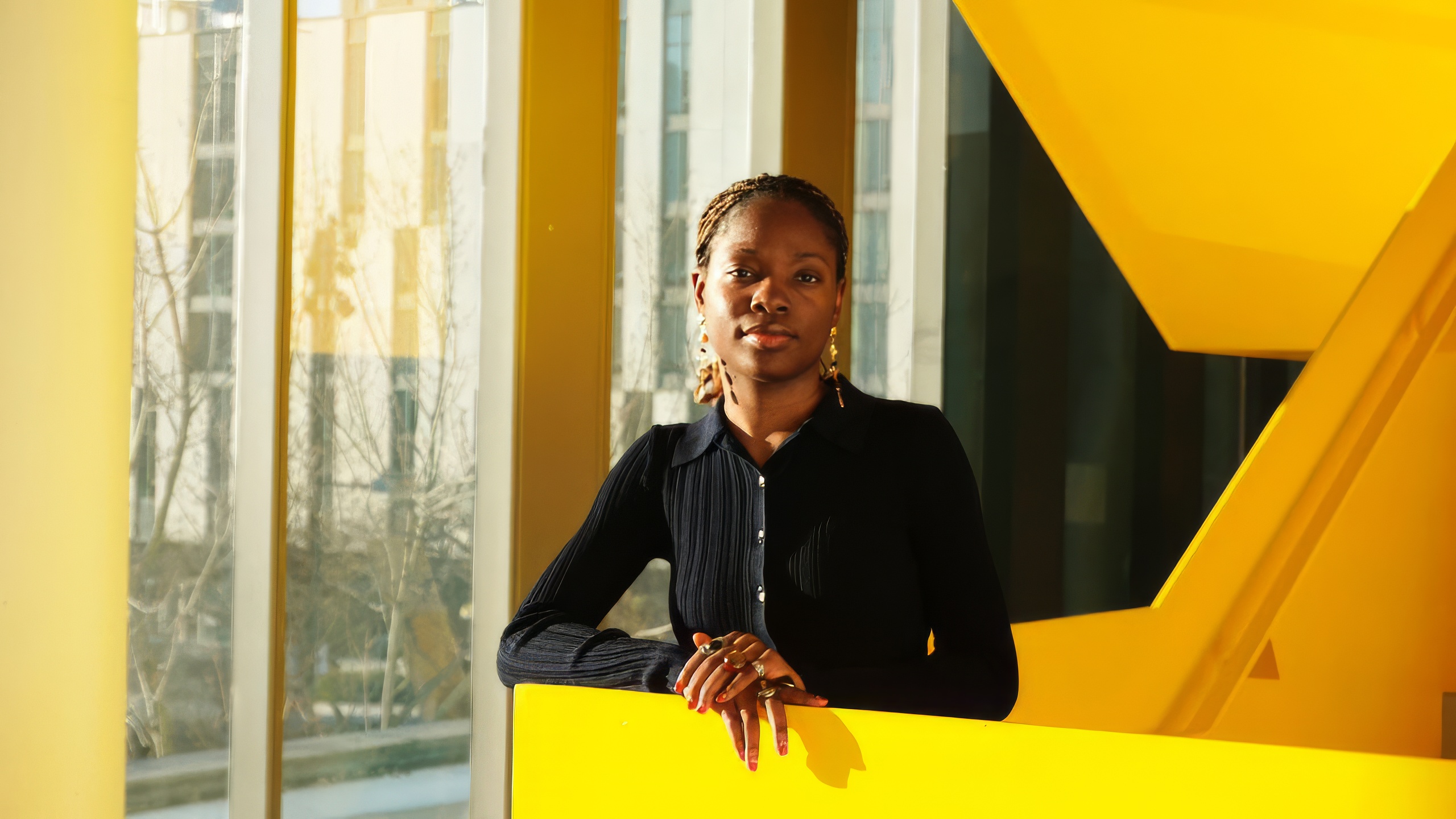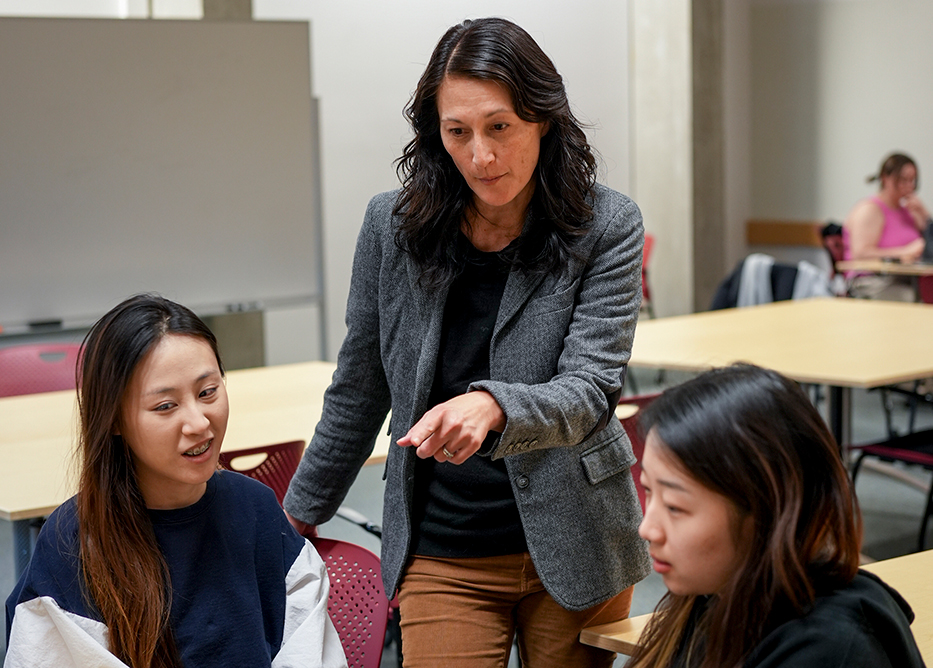Alumni Rumneek Johal and Carol Eugene Park graduated from the Master of Journalism program at the University of British Columbia in 2020. They now have their own media company, Decomplicated, which produces a daily newsletter and podcast. Johal and Park share their experiences starting their company, their goals and their collaboration with parent company, Overstory Media Group.
Some of the answers were edited for brevity and clarity.
Who came up with the idea for Decomplicated? Where did this stem from?
Rumneek: I came up with the idea for Decomplicated a few years ago when I was working at a different job. I was thinking about how as a young person, I felt like the people in my life were very disillusioned with the news and with the media. They wanted to be informed, but they would always come to me to explain stuff to them, and I found that a lot of people were like that. They do want to know more, but they don’t have the time or they don’t know where to look.
So I was talking about how it would be nice to have something that just simplified things and told people what they needed to know, gave them a little snapshot of a story or an explainer of a story or of trending topics so that they didn’t need to do the work.
That’s where the idea initially came to me, but it died there and nothing came out of it. And then, I was approached last year to actually put this in action and to create Decomplicated. I was terrified at first. But I decided to reach out to my dear friend Carol because I knew I could figure out the logistics, but from an audio standpoint, I needed an audio queen, and the first person I thought of was my Carol. I asked her if she wanted to come join me on this crazy adventure, not knowing what was going to happen next, or where we were gonna go. Thankfully, she said yes. So we started this journey last year, and we launched Decomplicated this March.
What are your goals for Decomplicated in the long run, especially once things go back to normal?
Rumneek: For us, the whole premise of Decomplicated is to obviously talk about stories that are trending and unpack them and make sure people are informed, but to also have uncomfortable conversations, or to look at and be very direct about things that other media outlets might not be. As things open up, I don’t think that’s going to change. I think we’re going to continue that. But we’d like to bring people on and have that human connection element that’s been missing during this pandemic. Carol and I love doing streeters. So we want to go and talk to people about these things. We are so transparent about what we think about our stories, but we want to hear what other people think.
Right now we’re so young. Decomplicated is so young. A lot of people just don’t know about us. So hopefully, more people will figure out what we’ve been doing and support us. And then from there, we can continue to grow and maybe get an office one day.
How do you select your stories or who decides what trending topic should be broken down?
Carol: It’s interesting because, with season one, Rumneek and I were very selective about the stories. We were really trying to focus on what a national millennial audience would be interested in. But we weren’t really considering how each story would affect us personally, or things that we were interested in. With season two, we’re looking at Twitter or different news outlets, and just seeing like, ‘Oh, that’s cool, I have no idea what it’s about’ but something that I would just naturally be reading anyway. We’re not only centering ourselves as storytellers but also as the people who would be reporting on these stories.
Do you both have favourite episodes?
Rumneek: We did one interview with Scaachi Koul from BuzzFeed, which was so cool. I thought that story was super important because it was important to Carol and I—it was about diet trends. We were talking about things that we see on TikTok, that people would see, and we got to interview Scaachi for that episode. She’s obviously an icon. That was just really fun, and it was one of the first times, I think, that Carol and I were just able to be candid and talk about it from our personal experience, like why were we even talking about that story or why we cared. So I think I’m going to go with that one. If you ask me tomorrow, it’s gonna be something different. Carol, what’s yours?
Carol: I initially thought about the TikTok one because it was super fun. From a storytelling perspective, I think the psychedelic story, our initial pilot, has stayed with me. That’s primarily because of the characters that we had and the relationship that we fostered with them. No matter how many episodes we do in the future, that will be the one that I come back to. I think I make up half of the listenership on that episode because I listened to it every few days because I just love it. And I always feel warm and comforted from listening to how honest and vulnerable our sources were. We were so surprised that it would be that open and that kind of intimate connection, just from that episode, has made that one particularly close to my heart.


Rumneek Johal (left) and Carol Eugene Park (right)
You mentioned you had already spoken to the founder of Overstory about your idea for Decomplicated. Now, what does that collaboration mean to you? And how did it fall into place?
Rumneek: Overstory is an independent media company and also a parent company to a number of brands. Under their umbrella, there is the Vancouver Tech Journal, Capital Daily, which is the flagship brand, Burnaby Beacon, Fraser Valley Current, the Calgary Citizen, Oak Bay Local, and then there’s us. We’re just all a product of that. The premise behind Overstory is to give the journalists the resources to do the work that they want in communities across Canada.
Honestly, this collaboration has allowed us to do what we’re doing, and that’s so rare because people don’t just give opportunities like this to people like Carol and I. We’re young journalists, racialized women and never in my wildest dreams would I have expected someone to give me a brand and be like, ‘take it and run with it,’ because they would have no reason to. In most newsrooms, my voice, as the youngest brownest girl in the room, is not going to be thought of as authoritative or that she knows what she’s talking about. But all it takes is one person to have faith in your idea or have faith in you and to say, ‘I believe in what you want to do,’ and to help give you the resources to make it happen. So yeah, without Overstory, there would be no Decomplicated.
The biggest problem with other media outlets is like, you know, people are under the impression that you have to obviously be in the industry for so long in order to have this kind of opportunity. But that just upholds the same structures because the same people get the same opportunities and talk about the same things in the same way. This was a chance for us to do things differently and on our own terms, which is huge. It’s so huge.
Carol: I just want to add on to that. Rumneek and I have worked for legacy, mainstream news outlets. I think with Decomplicated specifically, it’s just been so nice to breathe while you do journalism, and I’m really hopeful that Decomplicated goes on for years, at least five years, because otherwise it’s too ambitious. I don’t want to get too hopeful and then cry.
Yes, not all our workdays are beautiful and unicorny and flowery. We have days where we’re stressed, and we have days where we’re frustrated. But at the end of the day, I’m still able to breathe and know that I can still do the work without feeling like I’m going to go home and cry and lock myself in a bathroom, which I did often at other places.
What does a day for you both at Decomplicated look like?
Rumneek: So for season two, we’re becoming a daily podcast. We’re moving to five days a week, and so our day starts with basically scanning what’s happening in the Twittersphere, what things would be relevant to our audience and we note it down. Because our Decomplicated newsletter comes with the main story that we’re decomplicating and then we have a section called WTF where we take three trends that are either making us shake our heads, or making us say WTF, or that are just really interesting and cool. We pick three of those stories and add them to our newsletter and now our daily podcast.
Once we have our pitch meeting, which is usually just chaos, we decide what story we’re going to decomplicate for the day and then we do our research. We roughly script it because it is a conversation between Carol and I, so we try not to have it heavily scripted. We then record in our closets, and then Carol edits while we continue to prep for the next day’s stories, sign up for the newsletter, do all of our social stuff.
Carol: I think just two things I will add, we take our lunches very seriously, and I love that. It just brings me so much joy to lay down and not have to think about work. And second, Rumneek will yell at me if I work overtime, or if I’m still on Slack because I have no boundaries. So that’s it.
Rumneek: Yes, boundaries are very important here at Decomplicated. I think that that’s also something very different from traditional newsrooms. We’ve been conditioned to believe that being a journalist means that you need to be on all the time or available all the time.
But we are good at our jobs, we pay attention, we get shit done. I don’t need my people on my team to be burned out or unhappy. I don’t dread working at all, and I actually enjoy my job. That’s because there are boundaries. I know, when I’m working, I’m going to work really hard and get everything I need to get done. But at the same time, I’m not going to sacrifice my health or my wellness, and I’m not expected to. That’s not an expectation at Overstory, which is huge, because that’s so rare. As Carol said, I’m not used to people respecting my boundaries, like my mental health being taken into consideration. So yeah, boundaries are very important here, and they should be for everybody.
You both recently graduated from J-School and are such young entrepreneurs. Has J-School helped you anyway in this journey?
Carol: I’m not gonna pretend like our school hasn’t made me into the person or the journalist that I am today. Before I went to J-school, I was very sure of myself. I was very confident in who I was, maybe a little arrogant. And then I got to J-school. I learned that part of being a journalist is that you’re humbled all the time. You can’t take yourself too seriously. It really made me think about every single thing that I’m doing, whether it’s an interview, or how important a story is. It’s made me very critical, but also doubtful at times. And that’s actually helped a lot because now I check myself before I think I’m an expert and go through questions in a more cautious way. And I think that’s really helped with Decomplicated because a lot of people think that they’re journalists, and they just go and do a project, completely forgetting about the nuances and that their characters are humans, and you have to have integrity, and you have to make sure that you’re not traumatizing your sources. J-school has, directly and indirectly, taught me that. So lots of tears (went) through that building, but also lots of lessons.
Rumneek: I think I was the opposite. When I first came into J-school, I was like, ‘What the hell am I doing here?’ I was not sure of myself. I knew I always wanted to do journalism, but I thought nobody’s going to take me seriously and they have no reason to because I have no idea what I’m doing. But they gave me the tools to, one, gain confidence in myself as a writer and as a journalist, and second, to get the experience that I needed in order to feel that way, that I can stand on my own two feet to a certain degree and be like, ‘I actually can do this thing,’ because I have these tools to help me build up my voice. At first, it was really scary because you’re taught a certain number of things, given various tools but not necessarily told how to use them. I’ve used the tools that they gave me to carve out this path for myself and talk about things that I want to talk about and how I want to talk about them. I don’t think I would be where I am because I wouldn’t have had the networks that I have. I wouldn’t have had the opportunities that I have. I wouldn’t have had like the other professors that believed in me and told me I wasn’t an idiot. But yeah, with the crying, there were also maybe one or two happy tears and lots of happy hours.
Is there anything you both would like to tell your juniors?
Carol: I don’t want to come off as though I know everything and like I’m so established, but don’t be shy. Make sure you’re outgoing enough that people will remember you. Because ultimately, we came out of J-school with lots of skills and tools. But as Rumneek said, we wouldn’t be here if we didn’t make the connections through our internships and our other freelance jobs. Take advantage of those and have good relationships with former editors, and they’ll occasionally have a story idea for you.
Rumneek: Don’t quit. One thing I always say to people in my life is, if you’re in the room, don’t talk yourself out of the room that you earned the right to be in. If you’re at that table, use it, run with it, do not make yourself small, because you’re in that room for a reason.
Carol: Also, don’t take yourself too seriously, have fun, and the right people will come to you. Sometimes Rumneek will be like, ‘Carol, you’re giving me a hernia, please don’t tweet that.’ But I mean, quite frankly, like people at this point come for me for these tweets. Because that’s kind of how I’ve positioned myself where I can tell and report on certain stories. But also, I’m a real person and that’s what it means to be in this generation of younger journalists. We have fun, we have lives. And we’re healthy, wealthy, and we get that bread.


